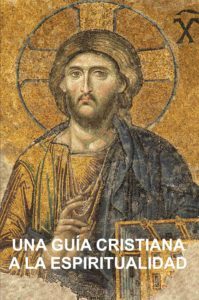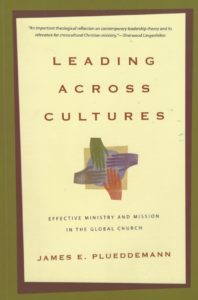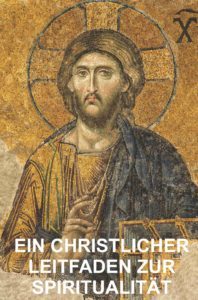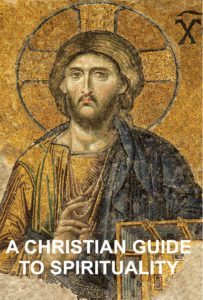Stephen W. Hiemstra's Blog, page 134
January 8, 2021
Jesucristo
 Por Stephen W. Hiemstra
Por Stephen W. Hiemstra“y en Jesucristo, su unico Hijo, Senor nuestro”
Por Stephen W. Hiemstra
Los nombres menudo cuentan una historia. El nombre, Jesucristo, no esta excepción.
Cuando usamos el nombre, Jesús, en Inglés, estamos transliterando el griego del Testamento Nuevo. El nombre primera de Jesús actualmente era Joshua (Josué) que significa “él salva” en hebreo. Sin embargo, debido el griego no tiene un “SH” sonido, Joshua no pudó ser precisamente transliterando en el griego del Testamento Nuevo. En consecuencia, pedimos prestado el nombre, Jesús, del griego.
El papel de Josué en el Testamento Antiguo es instructivo. Moises comisionó a Josué para conducir a la nacion de Israel con estas palabras:
“Entonces el SEÑOR nombró a Josué, hijo de Nun, y le dijo: ‘Sé fuerte y valiente, pues tú llevarás a los Israelitas a la tierra que les he jurado, y Yo estaré contigo.’” (Deut 31:23 NBH)
El nombre dado de Jesus resume su commission. Pero, la salvacion de Jesús surge como él nos lleva, no a la tierra prometida, pero en el cielo (Heb 4:1-11). Además, esta salvación surge, no de la ley, pero de la gracía (Phil 3:2-11).
Cuando usamos el nombre, Jesucristo, Cristo no es el apellido de Jesús. Cristo se traduce la palabra hebreo, mesías, en griego y se significa el ungido porque durante el puesta en aceite se derramó sobre su cabeza. Los sacerdotes, profetas, y reyes eran ungido. El Testamento Nuevo representa Jesús como cumplimiento los papeles de cada una de esos tres tipos de mesías.
El papel mesiánico de Jesus es resaltado en el Libro de Hebreos donde leemos:
De la misma manera, Cristo no se glorificó a El mismo para hacerse Sumo Sacerdote, sino que Lo glorificó el que Le dijo:“HIJO MIO ERES TU, YO TE HE ENGENDRADO HOY;” como también dice en otro pasaje:“TU ERES SACERDOTE PARA SIEMPRE SEGUN EL ORDEN DE MELQUISEDEC.” (Heb 5:5-6 NBH)
Melquisedec era rey de Salén (llamada más tarde como Jerusalén) y era sacerdote (Gen 14:18). Diciendo que Jesús es un sacerdote de la orden del Melquisedec expresa la idea que él es tambíen un rey. En Mateo 24:1-2 Jesús profetizado la destrucción del temple en Jerusalén, que ocurrió más tarde en el año 70, confirmando su papel profético.
Cuando confesamos que Jesus es el único hijo de Dios, reconocemos la divinidad de Jesus y la exclusividad como Salvador (John 3:16-17). La naturaleza infinita de Dios plantea un problema para nosotros porque somos finitos. Sólo alguien divino puede cruzar la línea divisoria entre lo infinito y finito. En Jesucristo, Dios cruza la brecha para iniciar la conversacion y medita para nosotros—un acto de gracias—como Sumo Sacerdote (Heb 5:1).
Notas
Iglesia Presbiteriana (E.U.A.) 2009. El Libro de Adoración. Preparado por la Oficina de Teología y Adoración. Louisville, KY: Geneva Press. Pagina 35.
Por razon del pecado de Moises en Meriba, Dios prohibó a Moises si mismo que llevar la gente de Israel en la Tierra Prometido (Num 20:8-12).
En Hebreo Melquisedec significa justo rey y algunos lo cree que estaba un titulo dado a Sem, el hijo justo de Noah (Gen 9:28). Salmo, como citó en Heb 5:6, tambien asociado el rey David con Melquisedec.
El hijo de Dios es tambien, por supuesto, un titulo real estrechamente relacionado con titulo que Jesus preferido que llamarse a si mismo—el hijo de hombre—que inmediato trae al mente el profecia de Dan 7.
El parábola de los viñadores destaca la exclusiva del papel de Jesús como mediador (Matt 21:33-40). El parábola de la banquete de bodas se refiere al problema creada cuando rechazamos Jesús como mediador (Matt 22:2-14). Cuando confesamos Jesús como uno de Dios y el único hijo, reconocemos al soberania de Dios en determinando el medios de nuestra salvacion.
Jesucristo
Ver también:
Prefacio de La Guía Cristiana a la Espiritualidad
Otras formas de participar en línea:
Sitio del autor: http://www.StephenWHiemstra.net
Comprar Libro: http://www.T2Pneuma.com
Boletín informativo: https://bit.ly/Dec_2020
The post Jesucristo appeared first on T2Pneuma.net.
Jesus Christus
Von Stephen W. Hiemstra
“Ich glaube an Jesus Christus, seinen eingeborenen Sohn, unsern Herrn.” Ω
Namen erzählen oft eine Geschichte. Der Name Jesus Christus ist keine Ausnahme.
Wenn wir den Namen Jesus auf Englisch verwenden, transliterien wir das Griechische des Neuen Testaments. Jesu Vorname war eigentlich Josua, was auf Hebräisch “er rettet” bedeutet. Da Griechisch jedoch keinen “sh” Ton hat, konnte Joshua im neudtestamentlichen Griechisch nicht genau transliteriert werden. Folglich haben wir Jesus vom Griechen ausgeliehen.
Josuas Rolle im Alten Testament ist lehrreich. Mose kommissionierte Josua, die Nation Israel mit folgenden Worten zu führen:
Und der Herr befahl Josua, dem Sohn Nuns, und sprach: Sei getrost und unverzagt, denn du sollst die Israeliten in das Land führen, wie ich ihnen geschworen habe, und ich will mit dir sein. (Deut 31:23)
Der Vorname Jesu, Josua, fasst seinen Auftrag zusammen. Die Rettung Jesu entsteht jedoch, wenn er uns nicht in das verheißene Land, sondern in den Himmel bringt (Heb 4:1-11). Diese Rettung stammt ausserdem nicht aus dem Gesetz, sondern aus der Gnade (Phil 3:2-11).
Wann wir die Name, Jesus Christus, benutzen, ist Christus nicht die Nachname Jesu. Christus übersetzt das hebräische Wort, Messias, ins Griechische und es bedeutet Gesalbtes weil Öl auf deinem Kopf während der Inbetriebnahme Vorgang gegossen wurde. Priester, Propheten und Könige wurden gesalbt. Das Neue Testament zeigt Jesus, wie er die Rollen jeder dieser drei Arten von Messias erfüllt.
Die messianische Rolle Jesu wird im Buch der Hebräer hervorgehoben, in dem wir lesen:
So hat auch Christus sich nicht selbst die Ehre beigelegt, Hoherpriester zu werden, sondern der, der zu ihm gesagt hat: Du bist mein Sohn, heute habe ich dich gezeugt. Wie er auch an anderer Stelle spricht: Du bist Priester in Ewigkeit nach der Ordnung Melchisedeks. (Heb 5:5-6)
Melchisedek war der König von Salem, das später Jerusalem geheißen war, und er war auch Priester (Gen 14:18). Auf Hebräisch bedeutet Melchisedek rechtschaffenen König, und einige glauben, es sei ein Titel gewesen, der Sem, dem gerechten Sohn Noahs, gegeben wurde (Gen 9:28). Zu sagen, da
January 5, 2021
Plueddemann: Cross-Cultural Leadership

James E. Plueddemann. 2009. Leading Across Cultures: Effective Ministry and Mission in the Global Church. Downers Grove: IVP Academic.
Review by Stephen W. Hiemstra
As you exit the parking lot in my home church, a sign reads: you are now entering the mission field. Few years back on a Sunday morning Evangelist Hussain Andaryas (www.HeSavedMe.com) cited the Great Commission in Matthew 28 and said: because you would not go across the seas to bring Christ to your brothers and sisters, God has given you a second chance. Now, they live across the street from you. Now, will you go? Each of us, if we lead at all, must now lead across cultures.
Introduction
In his book, Leading Across Cultures, James Plueddemann cites Geert Hofstede and likens leadership like learning to play an instrument and likens leadership across cultures as like learning to play several instruments (11). For Plueddemann: A missionary is anyone, from any country, who leaves home in order to proclaim the gospel, usually in another culture (13). For Plueddemann, a Christian leader focuses, harmonizes, and enhances the gifts of others for their own growth while cultivating the kingdom of God (15).
From Everywhere to Everywhere
Plueddemann summarizes the challenges of multicultural leadership with a slogan—from everywhere to everywhere (25). Mission challenges include short-term missions, church-to-church partnerships, leadership development strategies, and working under leadership of another culture (25-27). Short-term missions, for example, imply that missions are undertaken with little or no experience with either missions or the cultures involved. Clashes in culture are often therefore immediate and unexpected. For example, the American assumption of “equal partners” is foreign in most of the rest of the world where the usual assumption is a senior and a junior partner (26).
Cycle of World Missions
Plueddemann envisions a cycle of world missions composed of 5 steps:
Pre-evangelism,
Evangelism,
Church planting and nurture,
Leadership development, and
Partnership (48).
For Plueddemann, pre-evangelism involves both caring for people’s physical needs and their eternal needs through medical help, humanitarian relief, schools and development programs (51). Evangelism Is bringing people to Jesus and sharing the gospel: that Christ died for our sins in accordance with the Scriptures, that he was buried, that he was raised on the third day in accordance with the Scriptures (1 Corinthians 15:3-4 ESV; 52). In discussing the need to plant churches, he writes: Evangelism without discipleship is like giving birth and then leaving the baby in a dumpster. Newborns can’t live more than a few hours without the help of a family (53).
Role of Leadership Training
On leadership, Plueddemann observes that: Jesus taught and healed the sick, but his lasting ministry came from the training of the 12 disciples. Leadership development was also at the core of Paul’s evangelism (55). Leadership development naturally leads to partnership because Plueddemann observes: mature churches are characterized as self-propagating, self-supporting, and self-governing (56). It is indeed ironic (and a bit embarrassing) to see former mission partners now sending missionaries to North America.
Dr. James E. Plueddemann is Professor of Mission and Intercultural Studies at Trinity Evangelical Divinity School [1] in Deerfield, Illinois just outside Chicago. Leading Across Cultures is written in 12 chapters divided into 4 parts, including:
Multicultural Leadership in the Worldwide Church,
Leadership and Culture,
Contextualizing Leadership, and
Global Leadership in Practice.
These chapters are preceded by an introduction and followed by an epilogue (7-8).
Clearly, there is not time to summarize all that Plueddemann has written. However, I will never forget his comments specifically about culture. He defines two concepts—context and power distance—which bear summarizing.
High and Low Context Cultures
Citing Edward Hall’s book, Beyond Culture (New York: Anchor Books,1976), Plueddeman high-context and low-context cultures. In a high-context culture, information is passed informally with very little being communicated through formal speech. What is important are the atmosphere of the room, the sounds, smells, facial expressions, and body language. This is the norm in Africa, Asia, South America, and the Middle East. In low-context cultures the opposite is true. People pay attention to what is explicitly said. For example, people remember ideas, but forget who said them. Highly expressive forms of speech are valued in high-context cultures and viewed with skepticism in low-context cultures (78-79). In low-context cultures, speaking the truth face-to-face is valued; in high-context cultures, relationships are more important and difficult conversations take place through intermediaries (81).
Power Distance
Leadership always involves use of power so attitudes about power are culturally important. Plueddemann cites a study by Robert House (and others) called Culture, Leadership, and Organizations: The GLOBE Study of 62 Societies (London: SAGE Publications, 2004) which defines power distance as: the degree to which members of an organization expect and agree that power should be shared unequally (94). In a high-power distance culture, everyone agrees that leaders should have more authority, respect, and status symbols (fancy cars, expensive clothes, and so on). In low-power distance cultures, leadership is more participatory and leaders are expected to act like a peer and have a minimum number of perks (95).
Attitudes about the role of context and power distance can be dramatically different not only internationally, but between ethnic and age groups within a society. This is, in part, why pastors are sensitive to the style of dress and musical preferences when speaking at new churches.
Assessment
Plueddemann’s writing on leadership in a cross-cultural setting is insightful. His writing is filled with personal accounts, particularly focused on his time as a missionary in Nigeria. However, keep in mind that he writes primarily for the seminary student and professional missionary. The growth of North America as a mission field, however, widens the number of professionals who need to take his counsel.
[1] http://divinity.tiu.edu/academics/fac....
Plueddemann: Cross-Cultural Leadership
Also see:
Books, Films, and Ministry
Other ways to engage online:
Author site: http://www.StephenWHiemstra.net,
Publisher site: http://www.T2Pneuma.com.
Newsletter: https://bit.ly/Dec_2020
The post Plueddemann: Cross-Cultural Leadership appeared first on T2Pneuma.net.
January 4, 2021
God the Father: Monday Monologues (podcast) January 4, 2021
 Stephen W. Hiemstra 2020 (Ken Burtram Photography)
Stephen W. Hiemstra 2020 (Ken Burtram Photography)By Stephen W. Hiemstra
This morning I will share a prayer and reflect on God the Father. After listening, please click here to take a brief listener survey (10 questions).
To listen, click on this link.
Hear the words; Walk the steps; Experience the joy!
God the Father: Monday Monologues (podcast) January 4, 2021
Also see:
Monday Monologue On March 26, 2018
Other ways to engage online:
Author site: http://www.StephenWHiemstra.net,
Publisher site: http://www.T2Pneuma.com.
Newsletter: https://bit.ly/Dec_2020
The post God the Father: Monday Monologues (podcast) January 4, 2021 appeared first on T2Pneuma.net.
January 3, 2021
Prayer Day 7
By Stephen W. Hiemstra
Almighty God. We praise you for creating the heavens and the earth; creating all that is, was, or will ever be; and creating things seen and unseen.
We look on the order and beauty of your creation and break forth singing your praises.
Grant us strength for each new day to reflect your goodness in joyful praise to those around us.
In the name of the Father, the Son, and the Holy Spirit, Amen.
Prayer Day 7
Also see:
Believer’s Prayer
Other ways to engage online:
Author site: http://www.StephenWHiemstra.net
Purchase Book: http://www.T2Pneuma.com
Newsletter: https://bit.ly/Dec_2020
The post Prayer Day 7 appeared first on T2Pneuma.net.
Oración Dia 7
 Por Stephen W. Hiemstra
Por Stephen W. HiemstraDios Todopoderosa,
Te alabamos por crear los cielos y la tierra; por crear todos que esta, fue, o sera por siempre; y por crear cosas vistas y no vistas.
Miramos a la orden y la belleza de su creación y inmediatamente salgamos en cantar tu alabanza.
Concéde nos fuerza por cada día a reflejar tu bondad en alabanza de gozo a ellos cerca nos.
En el nombre del Padre, del Hijo, y del Espirita Santo, Amén.
Oración Dia 7
Ver también:
Gospel as Divine Template
Otras formas de participar en línea:
Sitio del autor: http://www.StephenWHiemstra.net,
Comprar Libro: http://www.T2Pneuma.com.
Boletín informativo: https://bit.ly/Dec_2020
The post Oración Dia 7 appeared first on T2Pneuma.net.
Gebetstag 7
January 1, 2021
New Year’s Prayer
By Stephen W. Hiemstra
Merciful father, Light of the World, Spirit of Truth,
Thank you for the gift of life, time to enjoy, and the many blessings that we take for granted.
Forgive us for our wasting of your gifts, for the sins that we willfully commit, and for the good things that we forget to do.
Have mercy on us.
Cast out the demons that torment us, the desires that demean us, and spirits that hide us from the truth.
Be especially near.
Help us to reflect on our weaknesses, our sinful behavior, and our neglectful hearts.
Grant us strength to meet the challenges of the new year and the grace to extend our blessings to those around us.
In Jesus’s precious name, Amen.
12/31/2017
New Year’s Prayer
Also see:
Christmas Prayer
How do Christians Connect with God? (2)
Blackaby Expects Answers to Prayer
Christian Spirituality
Looking Back
Other ways to engage online:
Author site: http://www.StephenWHiemstra.net
Publisher site: http://www.T2Pneuma.com
Newsletter: https://bit.ly/Dec_2020
The post New Year’s Prayer appeared first on T2Pneuma.net.
Almighty Creator
By Stephen W. Hiemstra
“I believe in God the Father Almighty, Maker of heaven and earth”
God’s humility expressed through the incarnation in Jesus Christ shines a light on His sovereignty (Matt 21:5;2 Cor 12:10). Truly powerful people can be fearlessly humble—they have nothing to prove and no one dares to challenge their authority. Their inherent strength and self-confidence makes them easy to work for. By contrast, the second and third tier managers often compete for more authority and always have their knives out. By analogy, an almighty God is generous and can be approached easily. Why should we be any different?
When King David wrote—“The heavens declare the glory of God, and the sky above proclaims his handiwork” (Ps 19:1), he did not just have creation’s beauty in mind. The order of the universe points to the glory and sovereignty of God. Everywhere that scientists have studied, the same laws of physics apply. Why should there only be one set of physical laws?
As David implies, the order and stability of the created universe testifies to God’s existence and sovereignty. Kurt Gödel, a Czech mathematician, who was born in 1906, educated in Vienna, and taught at Princeton University, is famous for his incompleteness theorem published in 1931. This theorem states that stability in any closed, logical system requires that at least one assumption be taken from outside that system.
An example of such a system in economics is price theory. The U.S. economy requires one price be set outside the economy (in the world market) to assure stability. In the nineteenth century, that price was gold, and the system was called the gold standard. Every price in the U.S. economy could be expressed in terms of how much gold it was worth. Now, the dollar functions that way.
If creation is a closed, logical system (having only one set of physical laws suggests that it is) and exhibits stability, then it too must contain at least one external assumption. God, himself, fulfills that assumption (Smith 2001, 89).
God’s sovereignty anchors His goodness. Three reasons can be cited. First, because God’s authority flows out of his creative work (not out of coercion, deception, or random events), it is legitimate (Jer 18:4). Legitimate authority is inherently good. Existence is good so the authority that made it happen must be good. Second, God’s authority as law-maker implies that if God says creation is good, then it is—by fiat—good (Gen 1:10). Third, in a practical sense, God’s sovereignty reduces uncertainty and increases stability—absence of conflict. Stability is good.
As sons and daughters of God, we are to take comfort in His sovereignty because, as heirs to His kingdom, His image is also our image (Gen 1:27). Therefore, we can be confident in our ability to deal with life’s challenges because God is for us and with us (Rom 8:28). What greater blessing could there be?
References
Smith, Houston. 2001. Why Religion Matters: The Fate of the Human Spirit in an Age of Disbelief. San Francisco: Harper.
Almighty Creator
Also see:
Preface to A Christian Guide to Spirituality
Other ways to engage online:
Author site: http://www.StephenWHiemstra.net
Purchase Book: http://www.T2Pneuma.com
Newsletter: https://bit.ly/Dec_2020
The post Almighty Creator appeared first on T2Pneuma.net.
Allmächtiger Schöpfer
Von Stephen W. Hiemstra
Ich glaube an Gott, den Vater, den Allmächtigen, den Schöpfer des Himmels und der Erde Ω
Gottes Demut, die durch die Inkarnation in Jesus Christus zum Ausdruck kommt, beleuchtet seine Souveränität (Matt 21:5;2 Cor 12:10). Wirklich mächtige Menschen können furchtlos demütig sein—sie haben nichts zu beweisen und niemand wagt es, ihre Autorität in Frage zu stellen. Ihre inhärente Stärke und ihr Selbstvertrauen machen es einfach, für sie zu arbeiten. Im Gegensatz dazu konkurrieren die Manager der zweiten und dritten Stufe häufig um mehr Autorität und haben immer ihre Messer heraus. In Analogie dazu ist ein allmächtiger Gott großzügig und kann leicht angesprochen werden. Warum sollten wir anders sein?
Als König David schriebe—“Die Himmel erzählen die Ehre Gottes, und die Feste verkündigt seiner Hände Werk.” (Ps. 19:2 L17), hatte er nicht nur die Schönheit der Schöpfer im Sinn. Die Ordnung des Universums weist auf die Herrlichkeit und Souveränität Gottes hin. Überall, wo Wissenschaftler studiert haben, gelten die gleichen Gesetze der Physik. Warum sollte es nur einen Satz physikalischer Gesetze geben?
Wie David andeutet, zeugen die Ordnung und Stabilität des geschaffenen Universums von Gottes Existenz und Souveränität. Kurt Gödel, ein tschechischer Mathematiker, der 1906 geboren, in Wien ausgebildet und an der Princeton University unterrichtet wurde, ist berühmt für seinen 1931 veröffentlichten Unvollständigkeitssatz. Dieser Satz besagt, da







